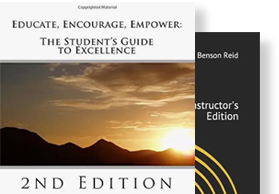Blog

The SELECT Method: Innovative Solutions and Sustainable Change
The question was asked, Dr. Shanelle, what do you do? Well friend, I’m glad you asked.
I am the owner and principal consultant at ACCESS Global Group. ACCESS Global Group is a dynamic consulting and coaching firm that addresses organizational needs by applying comprehensive, innovative, and relevant strategies to advance projects and develop professionals. Here’s a snapshot of our project-centric capabilities when applying one of our research-based frameworks.
The SELECT Method is a powerful framework that is utilized to enhance environments, design programs, and manage projects in a way that promotes connection, compassion, and community. This methodology is specifically tailored towards diversity, equity, inclusion, acceptance, and belonging, making it an invaluable tool for creating inclusive spaces.
One of the key aspects of the SELECT Method is Social Awareness. Practitioners implementing this methodology are committed to understanding and addressing social issues within their communities. By actively engaging with individuals and groups, they gain insights into the unique challenges and needs that exist. This awareness allows them to create environments that foster understanding and empathy, promoting a sense of belonging for all.
Equity Advancement is another integral component of the SELECT Method. It recognizes the importance of providing equal opportunities and resources to all individuals and communities. Through this lens, practitioners ensure that their programs and initiatives are designed to eliminate barriers and promote fairness. This commitment to equity helps to bridge gaps and create pathways for success.
Landscape Development is a key consideration when utilizing the SELECT Method. Practitioners understand the importance of taking into account the physical, social, and cultural aspects of a community. By carefully studying and analyzing these elements, they are able to design environments that are inclusive and supportive. This approach not only enhances the physical surroundings but also fosters a sense of pride and ownership among community members.
Emotional Literacy is another crucial element of the SELECT Method. It emphasizes the importance of emotional intelligence and understanding. Practitioners recognize that emotions play a significant role in shaping experiences and interactions. By promoting emotional literacy, they create safe spaces where individuals feel understood, validated, and supported.
Cultural Responsiveness is a fundamental principle of the SELECT Method. Practitioners appreciate and honor the diverse cultures and identities present within their communities. They acknowledge the importance of incorporating cultural perspectives and practices into their programs and initiatives. This ensures that individuals from all backgrounds feel seen, heard, and valued.
Target Assessment is the final component of the SELECT Method. It entails continuously evaluating and adjusting programs and initiatives based on established goals and the needs of the community. Practitioners actively seek feedback and input from stakeholders to ensure that their efforts are aligned with the desired outcomes. This iterative process allows for continuous improvement and ensures that programs are effective and impactful.
In conclusion, the SELECT Method provides a comprehensive framework for enhancing environments, designing programs, and managing projects that promote connection, compassion, and community. By incorporating elements such as Social Awareness, Equity Advancement, Landscape Development, Emotional Literacy, Cultural Responsiveness, and Target Assessment, practitioners are able to create inclusive spaces that cater to diverse individuals and groups. This approach ensures that programs and initiatives are tailored to meet the specific needs and aspirations of the community, resulting in enhanced outcomes and a stronger sense of belonging for all.
Empowering Women in WEB Development: Breaking Barriers, Achieving Goals
Introduction Women face numerous barriers when it comes to achieving their personal [...]
The Power of Uplifting Women: Unleashing Positive Change in Wellness, Equity, and Business
Introduction Empowering women is more than just a noble cause; it is [...]


